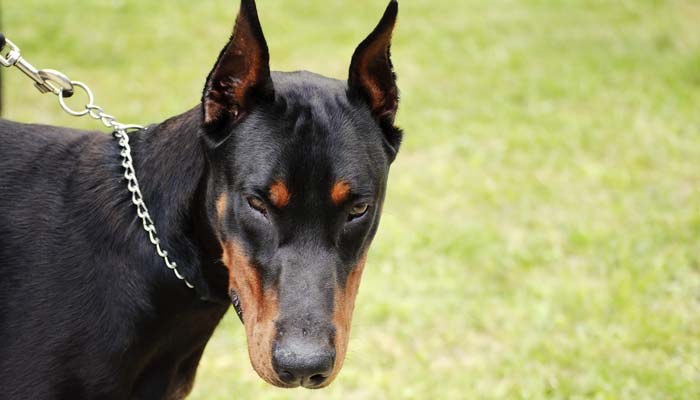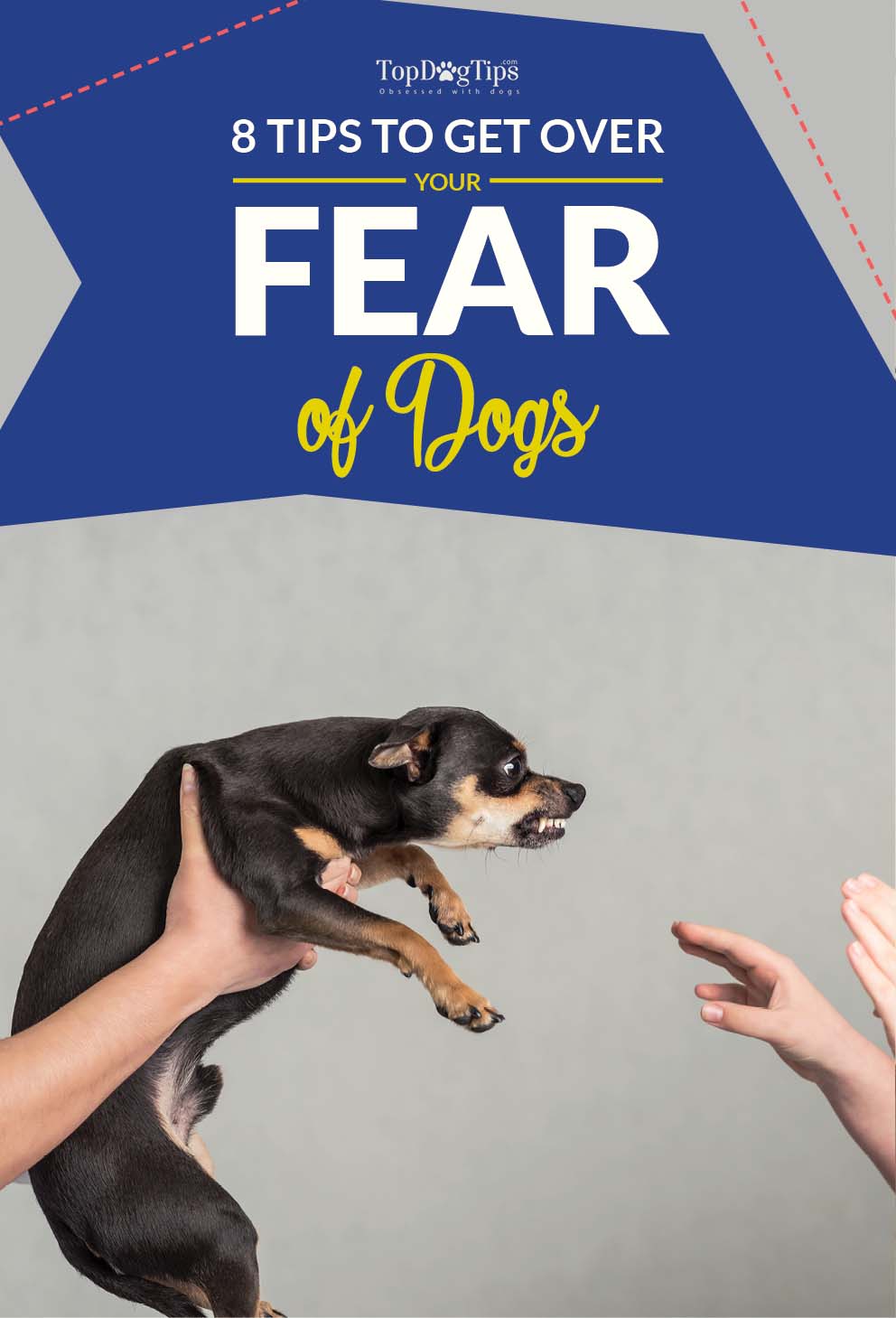
Table of Contents
Dogs can be intimidating, especially to someone who has had a bad experience with a canine in the past.
Most people are not afraid of a dog unless he is making threatening gestures or sounds.
Speaking of unnecessary sounds, did you have time to read my column last week about how to get your dog to stop howling?
Howling isn't necessarily a threatening sound, but it may terrify someone who is afraid of dogs.
If you're one of these people, you're in the right place. This week, I'm going to share some information on getting over your fear of dogs.
Zoophobia is a fear of animals. One of the subtypes of this phobia is cynophobia – the fear of dogs.
Obviously, I am not afraid of dogs, but many people are, and it can be a very debilitating fear.
Dogs are everywhere nowadays, and a fear of them may keep you from enjoying the world around you and socializing with the people that you care about.
The number of domesticated pet dogs is steadily growing, and someone suffering from cynophobia may feel uncomfortable entering a home if the family has a dog.
A cynophobic person may not want to walk in public parks or on walking trails where dogs are welcome.
Their fear may be holding them back from enjoying their environment, their family, and their friends.
READ ALSO: 6 Good Reasons NOT to Get a Dog
8 Tips on How to Get Over a Fear of Dogs (Best Advice from Animal Experts)
If you have a fear of dogs, you're not alone. If you feel like your phobia is holding you back, you need to make an effort to treat the problem.
Getting over your fear of dogs won't be easy, but it will be worth it!
The first thing you'll need to do is understand when fear becomes a problem.
Being nervous around dogs and being scared of them are two very different things.
Fear is a natural emotion, but when it becomes excelled to the point that it is hyperactive and causes anxiety, it is no longer your body's natural response.
1. Dr. Nate Eliason
Dr. Nate Eliason wrote this guest blog discussing how to conquer fears.
It doesn't specifically focus on cynophobia, but many of the treatment options he mentions will work for any type of fear.
I was impressed by his discussion of what makes fear a problem because many of us don't understand that concept.
- Fear is necessarily unpleasant because its “purpose” is to help us stay safe by avoiding dangerous situations. However, when it becomes overactive, our entire life can be unpleasant. Exposure therapy deliberately ‘exposes’ us to fear in order to help us learn how to bring it under control and experience it in a normal way.
2. Doggy Blog
If you're still questioning whether you suffer from cynophobia or not, Doggy Blog may be able to help you out.
This article discusses the symptoms of the phobia.
If you don't have any of these symptoms, then odds are you are just nervous around dogs and not actually afraid of them.
- Trembling
- Palpitations
- Sweating
- Nausea
- Difficulty breathing
- Increased heart rate
- Urge to escape
- Dizziness
- Faintness
- Dry mouth or a choking sensation
- Emotional distress
- Lightheadedness
- Panic attacks
3. CalmClinic.com
According to CalmClinic.com, like most specific fears, cynophobia typically develops during childhood – usually between the ages of 10 and 13.
I found this article on the site that explains the three most common causes of cynophobia: a negative personal encounter with a dog, seeing someone else have a negative encounter with a dog, or learning the behavior from a cynophobic parent or caregiver.
Of course, there are some people who are just scared of dogs.
They've never had a bad experience or witnessed someone getting bit by a canine.
Their family members may even love dogs, but for some reason, the person is still cynophobic. The answer to this occurrence can be found in this article as well.
- Evolutionary psychology holds that a fear of dogs evolved in humans as a survival mechanism. Learning to fear and avoid large predators would have been of use to humans in the days when wild, dangerous, and hungry animals were commonplace. This branch of psychology suggests that cynophobia is a combination of genetic and experiential factors.
4. Phobia Fear Release
phobia-fear-release.com explains in a very easy-to-read way what people can do to help treat their specific phobias.
They have a very interesting article dedicated to cynophobia. This article is written in an upbeat manner.
I find that very important, considering the people who are reading it are likely frustrated with their phobia or the irrational fears of someone very close to them.
Adding a positive spin to a stressful and frustrating situation may make the reader feel better about their situation.
Remember, you're not alone in dealing with cynophobia, and you're not the only person who wants help getting over your fear of dogs.
- Imagine what your life will be like when you know that you are not “defective.” When you can be confident and at ease in situations where you used to feel your cynophobia. And when you can talk about your former cynophobia symptoms as though you are describing a movie where the character is someone else, not you.
So, what are some of the specific ways to get over your fear of dogs?
The first thing that you should do is reach out to a trained therapist that deals specifically with helping people get over their fears.
They will be able to recommend the best treatment plan based on the degree of your cynophobia and your specific wants and needs.
5. About Phobias
As you will read in this article about health, treatments may also be paired with medication if the professional that you work with believes that it may be beneficial.
Usually, medication is only used to treat an underlying condition like anxiety.
- If your phobia is severe, medications might be used in conjunction with therapy. Certain medications can significantly reduce your anxiety, allowing you to focus on the therapeutic techniques. Although cynophobia can be devastating, it is extremely treatable. With a bit of work, there is no reason that you must continue to suffer.
6. FearOf.net
FearOf.net goes into greater detail about some of the most common specific treatments for cynophobia.
One of these treatments is known as systematic desensitization. You can read more about this treatment option in this article.
- The most popular and effective technique for treating phobias is the systematic desensitization technique developed by Joseph Wolpe in 1958. It involves having the patient imagine being in the same room with a dog while employing specific breathing and relaxation techniques to reduce one’s anxiety.
7. Andrea Arden
Professional dog trainer Andrea Arden has written a wonderful blog post on her site about helping a woman named Karen get over her fear of dogs.
Arden and her team enlisted the help of a qualified therapist while helping Karen, and she documents the entire process in this post.
- In our first meeting with her, she explained to Kathy how common phobias are, especially cynophobia. She said that in addition to repetitive exposure to friendly, well-mannered dogs, Kathy should choose a mantra to focus on during these encounters. This way, she could focus on what she would hopefully feel automatically in the future (that she is safe) when encountering dogs rather than practicing her internal monologue about how scared she was and how potentially dangerous the situation was. She also suggested some ways for Kathy to calm herself physically. Deep breathing and relaxing her shoulders were part of the plan. This would hopefully help to relieve Kathy’s sense of tightness in her chest, her heart pounding, and her shaking.
8. Berkley University
If you're reading this recap in hopes of helping a child conquer their fear of dogs in your life, I found a great resource for that as well.
This is more of a forum post that is run by parents in the Berkeley, California area.
There is some great information here about helping children get over their fear of dogs.
- We had a child come to our house once who had a fear of dogs, and we have 2 overly friendly, excitable labs. They came during a party we were hosting, and his parents asked to come again when there wasn't a party and just work with the boy and our dogs. We agreed. I wanted to just share with you our strategy, which may or may not work for you but might help.
- We first kept the dogs in the crate. We ordered pizza, and everybody ate while the dogs were in the crates (at the end of the kitchen, so far enough from the table but in plain sight); we reminded him that the dogs were in crates and couldn't get out. We started by working on his comfort zone with being near the dogs.
If you're not comfortable trying to overcome your fear on your own, enlist the help of a trusted friend or family member.
Don't forget to consult a trained therapist before trying anything on your own.
The last thing you want is to have a panic/anxiety attack around a dog that you're not familiar with.
READ NEXT: How to Overcome Fear of Dogs – Cynophobia in Adults and Children














